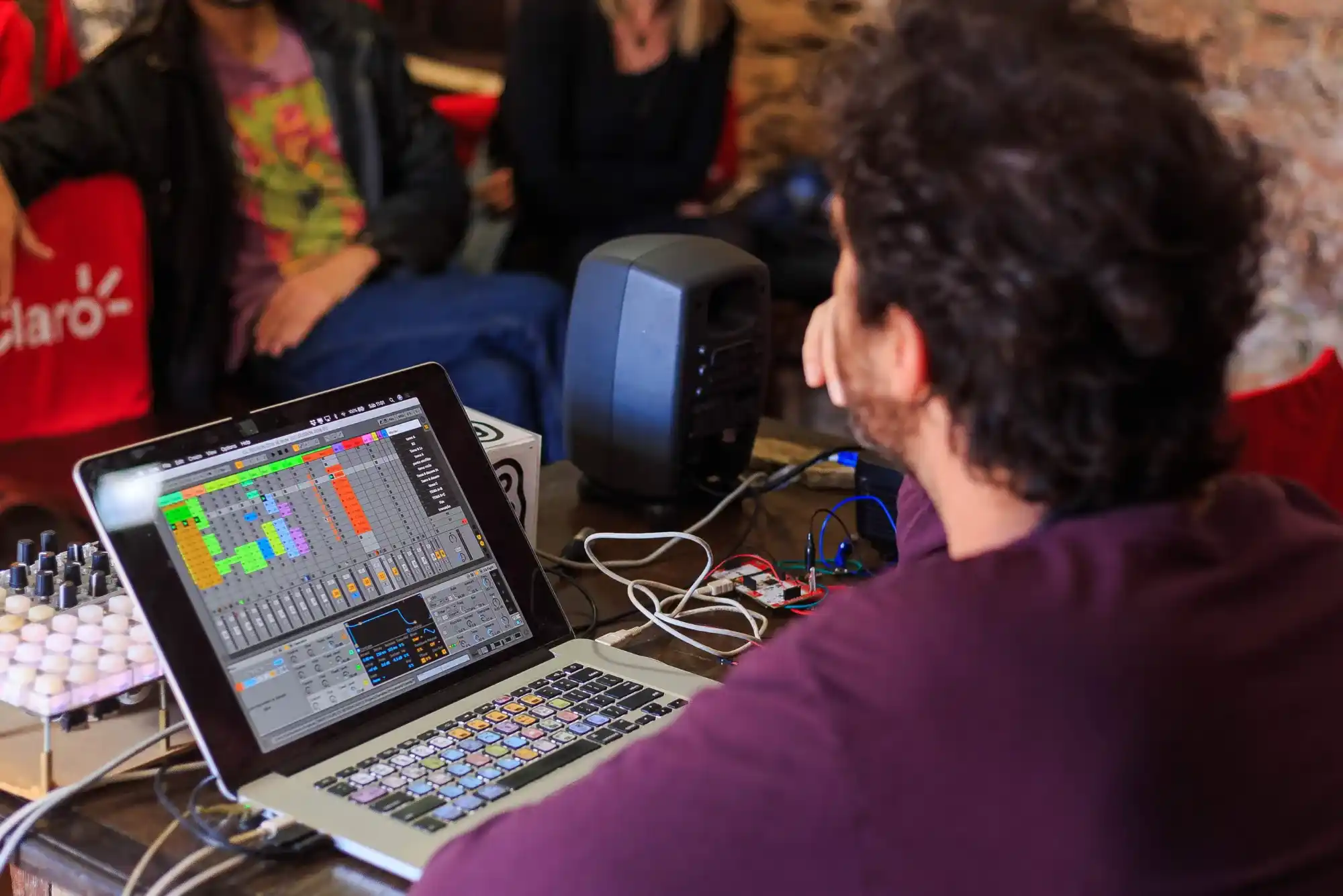Live sound engineering is an exhilarating field that blends technical expertise with creative flair, and its future in India is brimming with potential. As the country’s entertainment industry expands, driven by music festivals, concerts, corporate events, and cultural gatherings, the demand for skilled professionals in live sound engineering is on the rise. This article delves into the trajectory of live sound engineering careers in India, with a special focus on opportunities in Delhi, and outlines what aspiring engineers need to succeed in this dynamic industry.
The Growing Demand for Live Sound Engineering
India’s entertainment landscape has transformed dramatically over the past decade. From global music festivals like Sunburn and NH7 Weekender to local cultural events and corporate galas, live events are booming. This surge has created a robust need for professionals skilled in live sound engineering, the art and science of managing audio for live performances. Whether it’s ensuring crystal-clear vocals at a concert or balancing sound for a theater production, live sound engineers are indispensable.
The rise of destination events and experiential marketing has further amplified opportunities. Cities like Mumbai, Bangalore, and Delhi are hubs for such activities, with live sound engineering in Delhi, India, gaining particular prominence due to the capital’s vibrant cultural scene. Delhi hosts major events like the Delhi International Arts Festival and high-profile corporate functions, all of which rely on expert sound management to deliver immersive experiences.
According to industry reports, India’s live events market is expected to grow at a compound annual growth rate (CAGR) of over 18% through 2030. This growth directly fuels demand for live sound engineering professionals who can handle sophisticated audio systems and adapt to diverse event formats. The increasing adoption of advanced technologies, such as digital mixing consoles and immersive audio systems, is also reshaping the skill set required, making continuous learning a cornerstone of success.
Key Skills for a Successful Career
To thrive in live sound engineering, professionals must master a blend of technical, creative, and interpersonal skills. Here’s a breakdown of what’s essential:
-
Technical Proficiency: Live sound engineers must understand audio equipment, including microphones, mixers, amplifiers, and digital audio workstations (DAWs). Familiarity with software like QLab or Ableton Live is increasingly valuable for managing complex live setups.
-
Problem-Solving Under Pressure: Live events are unpredictable. A microphone might fail mid-performance, or feedback could disrupt a show. Engineers need to troubleshoot issues swiftly without compromising the audience’s experience.
-
Acoustic Knowledge: Understanding how sound behaves in different venues—whether an open-air festival or an indoor auditorium—is critical. This is especially relevant in Delhi, where live sound engineering in Delhi,India, often involves adapting to varied spaces like amphitheaters or banquet halls.
-
Collaboration and Communication: Engineers work closely with artists, event organizers, and other technicians. Clear communication ensures everyone’s vision aligns, from the performer’s audio preferences to the event’s logistical needs.
-
Adaptability to Technology: The shift toward immersive audio formats, such as Dolby Atmos for live events, is gaining traction in India. Engineers who stay updated on these advancements will have a competitive edge.
Opportunities in Delhi and Beyond
Delhi, as India’s capital, is a hotspot for live sound engineering in Delhi, India. The city’s eclectic mix of cultural festivals, international concerts, and corporate events creates a steady demand for skilled engineers. Venues like the Siri Fort Auditorium and open-air spaces like Jawaharlal Nehru Stadium regularly host events requiring top-tier audio expertise. Additionally, Delhi’s proximity to other northern cities like Chandigarh and Jaipur expands opportunities for engineers willing to travel.
Beyond Delhi, cities like Mumbai, Bangalore, and Hyderabad are also seeing a surge in live events. Mumbai’s Bollywood-driven entertainment industry and Bangalore’s reputation as a music festival hub offer diverse roles for sound engineers. Meanwhile, smaller cities are emerging as viable markets, with Tier-2 cities like Pune and Ahmedabad hosting growing numbers of concerts and festivals.
Freelancing is a common career path in live sound engineering, offering flexibility and exposure to varied projects. However, full-time roles with event management companies, audio equipment firms, or production houses are also on the rise. Companies like Harman Professional and Bose India often seek engineers for both on-site work and equipment training roles.
Challenges in the Field
Despite the opportunities, live sound engineering in India comes with challenges. The industry can be demanding, with long hours and irregular schedules, especially during peak event seasons. Engineers often work weekends and late nights, which can strain work-life balance. Additionally, the initial investment in education or equipment can be significant, though many professionals start by renting gear or working under established engineers.
Another challenge is the lack of standardized training programs. While institutes like the Sound Engineering Academy in Kerala or courses in Mumbai offer specialized training, many engineers are self-taught or learn on the job. This gap underscores the need for mentorship and hands-on experience, particularly for those entering live sound engineering in Delhi, India, where competition is fierce.
How to Break Into the Industry
For aspiring engineers, building a successful career requires strategic steps:
-
Education and Training: Enroll in sound engineering courses or workshops. Online platforms like Coursera or Berklee Online offer relevant certifications, while local institutes provide hands-on training.
-
Networking: Attend industry events, music festivals, or trade shows to connect with professionals. Joining communities like the Audio Engineering Society (AES) India chapter can open doors.
-
Hands-On Experience: Start as an assistant or intern at live events. Even small gigs, like local band performances, provide valuable experience.
-
Portfolio Building: Record your work and create a portfolio showcasing your ability to handle different event types. A strong portfolio can set you apart in competitive markets like Delhi.
-
Stay Updated: Follow industry trends, such as the adoption of AI-driven audio tools or wireless audio systems, to remain relevant.
The Role of Technology in Shaping the Future
The future of live sound engineering is closely tied to technological advancements. AI and machine learning are beginning to influence audio processing, with tools that automatically adjust sound levels or detect feedback. Immersive audio systems, like L-Acoustics’ L-ISA, are also gaining traction, offering audiences a 360-degree sound experience. Engineers who master these technologies will be in high demand.
Sustainability is another emerging focus. As events prioritize eco-friendly practices, engineers may need to work with energy-efficient equipment or design sound setups that minimize environmental impact. This trend is particularly relevant in urban centers like Delhi, where large-scale events face scrutiny for their ecological footprint.
The Road Ahead
The future of live sound engineering careers in India is bright, driven by the country’s growing entertainment industry and technological advancements. With the right skills, adaptability, and passion, engineers can carve out rewarding careers in this dynamic field. Delhi, with its vibrant event scene, remains a key hub for live sound engineering in Delhi, India, offering a gateway to both local and national opportunities.
Aspiring engineers should focus on continuous learning, networking, and hands-on experience to stay competitive. As India’s live events industry continues to grow, live sound engineering will remain a critical and exciting profession, blending creativity, technology, and the thrill of live performance.




